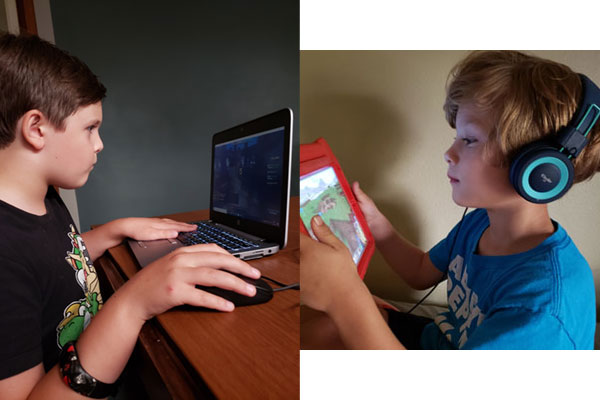By Nancy Varekamp | CNews Editor
Quarantining. Social distancing. It’s stressful for everyone, especially children.
“All people need connection, especially kids learning to socialize,” reported Kelsey Naylor, MSW, CSWA and prevention specialist at Faubion School through Trillium Family Services.
“Kids overall are resilient,” Kelsey said. “Our brains tend to not fully develop until we’re in our mid- to late-20s, so there’s room for healing in a giant trauma like this. But this might be piling on top of an already stressful life.
“So much is circumstantial and differs on how the family is coping, and that’s going to look different for every family,” she noted.

“Play – especially with other children – is important in childhood development. It also helps them process what’s happening in their lives,” Kelsey explained. “It teaches them problem solving and other skills essential to becoming functional adults in our society.”
That’s why some Concordia parents have created “pods” with other families. They put their trust in a group of parents who all vow to forego physical contact with others to allow their children to socialize and/or school together.
According to Kelsey, many families can’t afford or don’t feel comfortable with the concept. Each must make the decisions suitable for them.
Social interaction, however, doesn’t have to be in-person. Kelsey encourages finding social connections online, like virtual play groups. “And, sure there’s more video games being played lately, but they’re interacting with people while they’re playing.
“If people can get interaction in any way that they’re safe, I’m all for it.”
Parents face at least two more challenges: economics and explaining the pandemic to their children.
As for economic concerns, “The disparities we saw pre-COVID – access to education, health care, parent interaction – it’s only being magnified now,” she said.
Kelsey considers the central piece of the COVID-19 puzzle for all families is parent engagement.
The Centers for Disease Control offers tips on broaching the subject with children at CDC.gov/coronavirus/2019-ncov/ daily-life-coping/talking-with-children.html
“Keeping kids from being exposed to everything that’s happening isn’t the best way to approach it. Kids pick up on stress, news bits and things they’re hearing from friends, older siblings, etc.
“Avoiding the topic or telling kids ‘Don’t worry about it,’ usually has the opposite effect.”
She recommends simple, ageappropriate language to explain the information to children.
Kelsey also warns against dwelling on the negative – sickness and death – and instead empowering children to take prevention measures like washing their hands, wearing face masks in public and more.
“This approach gives them the facts about COVID-19 and actionable steps to stay safe.”
Nancy Varekamp is semiretired from her career in journalism, public relations and – her favorite work engagement – writing and editing targeted newsletters.